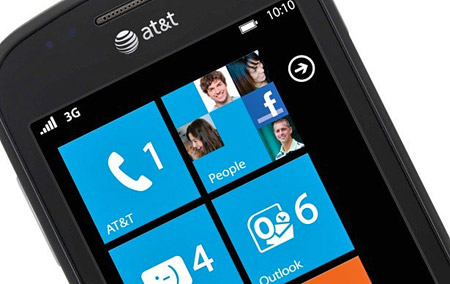Android vs. Windows Phone: The Case For Conversion
Moving from Android to Windows Phone has been something of a shock. But a good one, in a lot of ways. Using the Lumia 900 in place of any number of Android phones has made some things easier, some things harder and some new things possible. Windows Phone is such a refreshingly different mobile OS that it's difficult to even compare it to Android in many ways, but with the Lumia 900 being offered for just $99 (or free, in some circumstances) on a new two-year contract, it has surely tempted many consumers. So, without further ado, let's take a look at some of the most compelling reasons to make the switch to Windows Phone...

Where Android falls a bit short, Windows Phone excels. In fact, I'd argue that Windows Phone 7.5 is the most beautiful mobile OS on the market. There's just nothing out there that looks and feels as smooth and polished in the hand. Microsoft's "Metro" user interface is well crafted on smartphones, and not only is it a solid proving ground for Windows 8 (at least on portable devices), but it's just an efficient (and addictive) way to use a smartphone. Metro's design cues aren't just good looking, they're useful. It's extremely easy to flip and swipe through Windows Phone, and particularly for users who are more interested in ease-of-use than hack-ability, Microsoft has put together a nice package. Also, the live tile feature -- which allows app "tiles" to flip over and present up-to-date, glanceable information -- is a huge leap above the simple notifications available elsewhere.
Nokia support
Nokia is still a huge player in the smartphone space, and still makes some of the best hardware on the market. While not every Windows Phone is a Nokia device, having access to their products is big plus. Nokia's cameras are top-notch, and moreover, those that grab a Lumia will have access to an exclusive niche inside of the Windows Phone app marketplace. In there, you'll get access to Nokia Drive, Transport and Maps. These are the only navigational applications that even come close to rivaling Google Maps Navigation, and in fact, Nokia Drive does Google one better by providing offline map guidance in many countries. Just download the country maps at home, and boom -- offline turn-by-turn guidance on your phone. For travelers, it doesn't get much better.
Social integration

You've heard the pros, now for the cons…
Limited apps
The sad truth is that the Windows Phone app marketplace is woefully understocked compared to Android's Google Play market. Many of the more popular productivity apps aren't available on Windows Phone, and givin the sub-10 percent market share, it's unlikely many ever will.

Limited hardware options
Microsoft has very rigid specifications on what a Windows Phone can or can't be. This impacts screen resolution, among other things. From a developing standpoint, these rigid specifications are good; it's tougher to develop for Android simply because there are so many possible screen resolutions to take into account.

Huge disparity versus rival ecosystems
At least on Android, you can generally find most iOS apps, and they work quite well. On iOS, even Google generally tries to make its best applications available for iPhone users. These benefits really don't translate across to Windows Phone. There's no decent Google Voice app for Windows Phone 7, for example, and if you're considering future access to Drive, Maps, etc., you're probably going to be out of luck. Few of the other big players are extending olive branches toward Microsoft's mobile OS, so if it's vitally important to you to have mobile access to Apple or Google-related products, WP will probably fall short of meeting those expectations.
Windows Phone 7.5 is a great looking mobile OS that makes its competitors looked dated in many respects by comparison, but it's also quite intuitive and easy to enjoy once you've learned your way around. In the end, it's great to have multiple options at our disposal, and hopefully by the year's end, we'll be able to reevaluate the situation once more with Windows Phone 8 and Android 5.0.






